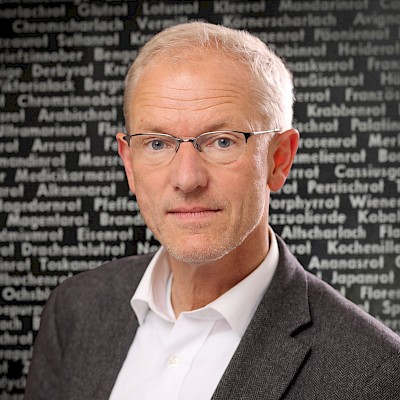Professor of German and Comparative Literature (Göttingen, since 2005). 1994-95, Professor for Comparative Literature, Munich; 1995-2005, Professor for German and Scandinavian Literatures, Kiel. Visiting scholarships in Odense; UCI Irvine; Aarhus, Denmark; Bergen, Norway; Indian Institute of Science, Bangalore; HUST University, Wuhan/China; Boulder, USA; Washington University St. Louis; New York University.
Numerous prizes and awards, among others honorary degree, Aarhus (2008), Julius Campe Award (2003), Leibniz Prize (2009), Heisenberg Medal (2011), H. C. Andersen Prize (2012), Fellow Wissenschaftskolleg Berlin (2001/02) and Siemens Stiftung Munich (2014/15). Paul Celan Fellow, Washington University St. Louis (2003); Poet in residence (Mainz, Kiel, Birmingham).
Literatur als Totengespräch: Zwischen Hermeneutik und Kunstreligion
(Literature as a Conversation with the Dead: Between Hermeneutics and ›Religion of Art‹)
In most hermeneutical theory, hermeneutics is defined as a self-reflective process of understanding texts of ›dead authors‹ that in some way may affect the self-understanding of the readers and the world they conceive. Numerous prominent authors, both of theory and of poetry, seem to suggest that every hermeneutical activity somehow implies a dialogue with the dead in a non-metaphorical sense, which in one way or another tries to make the voices of the dead heard, to commemorate their speakers, to react to them - thus conceptualizing not only literature itself, but also hermeneutical interpretation as an act of memory, even as a an attempt of reviving. Obviously, all metaphors, rhetorical means or even arguments that point in this direction must, to very different degrees of systematic reflection, imply mythological patterns or even concepts of what in German romanticism was labeled »art religion« (»Kunstreligion«). That is true for different theoretical positions, ranging from Gadamer (»Überlieferungsgeschehen« as an ongoing dialogue with the dead) to the famous opening of Stephen Greenblatt’s »Shakespearean Negotiations«: »I began with the desire to speak with the dead.« And it is of course a persistent theme and strategy of poetry itself, including Bob Dylan's late song poetry and its self-proclaimed »mystery plays« with the »voices in the night, tryin’ to be heard« (which I have recently discussed in a book).
